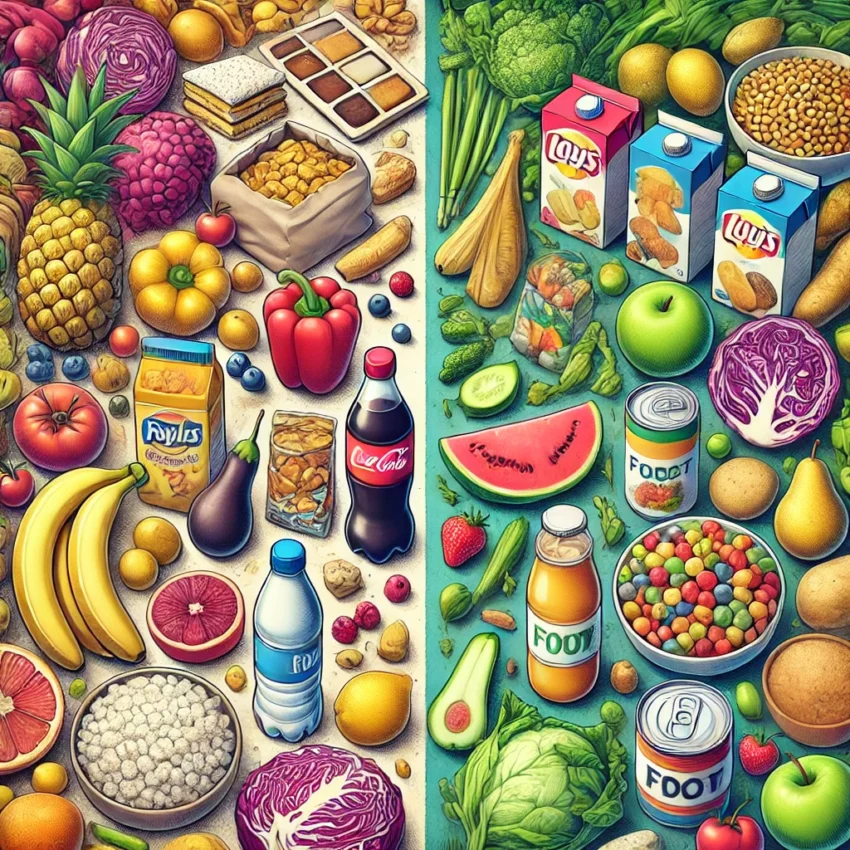In the fast-paced modern world, convenience often takes precedence over nutrition. Ultra-processed foods (UPFs) dominate the shelves of supermarkets, enticing us with their convenience, affordability, and taste. However, beneath their appealing packaging lies a host of health risks that make these foods a dangerous staple in our diets.
Understanding Ultra-Processed Foods
Ultra-processed foods are industrially manufactured products, often composed of a mix of ingredients such as preservatives, artificial flavors, colorings, and emulsifiers. These foods are designed to be hyper-palatable, with little resemblance to whole, natural foods. Common examples include sugary cereals, soft drinks, instant noodles, packaged snacks, and processed meats.
The Health Risks of Ultra-Processed Foods
- Nutritional Imbalance: UPFs are typically low in essential nutrients such as fiber, vitamins, and minerals. Instead, they are packed with unhealthy fats, added sugars, and excessive sodium, contributing to poor nutritional quality.
- Increased Risk of Chronic Diseases: Studies have linked the consumption of UPFs to a higher risk of obesity, type 2 diabetes, cardiovascular diseases, and certain types of cancer. The high levels of sugar and unhealthy fats can disrupt metabolic processes, leading to these conditions.
- Addictive Properties: UPFs are engineered to be highly palatable, triggering dopamine release in the brain, which can lead to overconsumption and dependency. This addictive nature makes it harder to switch to healthier alternatives.
- Impact on Gut Health: The additives and preservatives in UPFs can negatively affect gut microbiota, the community of microorganisms crucial for digestion and overall health. A disrupted gut microbiome can lead to inflammation and a weakened immune system.
- Contribution to Mental Health Issues: A diet high in UPFs has been associated with an increased risk of depression and anxiety. Poor nutrition can affect brain function and mood regulation.
Why Are Ultra-Processed Foods So Ubiquitous?
The convenience and long shelf life of UPFs make them a preferred choice for many consumers, especially in urban areas where time is limited. Additionally, aggressive marketing by food companies often targets children and low-income communities, perpetuating their consumption.
How to Reduce Ultra-Processed Food in Your Diet
- Read Labels Carefully: Avoid foods with long ingredient lists or items you can’t recognize as natural ingredients.
- Cook More at Home: Preparing meals from scratch allows you to control the ingredients and prioritize whole, natural foods.
- Choose Whole Foods: Opt for fruits, vegetables, whole grains, nuts, and seeds over packaged and processed items.
- Be Mindful of Marketing: Don’t be swayed by health claims on packaging. Often, “low-fat” or “sugar-free” labels can still signify a heavily processed product.
The Bottom Line: Real Food, Real Health
Ditching ultra-processed foods is a step toward a healthier, more balanced life. By making conscious choices to prioritize whole, minimally processed foods, you can protect your body from the long-term harm associated with UPFs. Start small, make incremental changes, and savor the benefits of real, nutritious food—your body will thank you.


